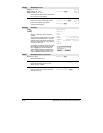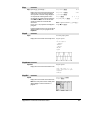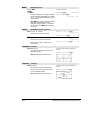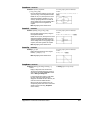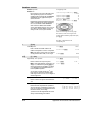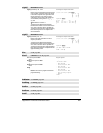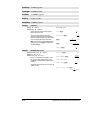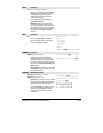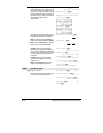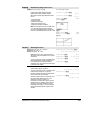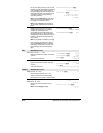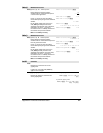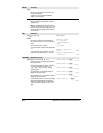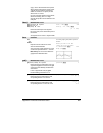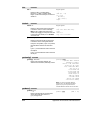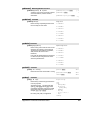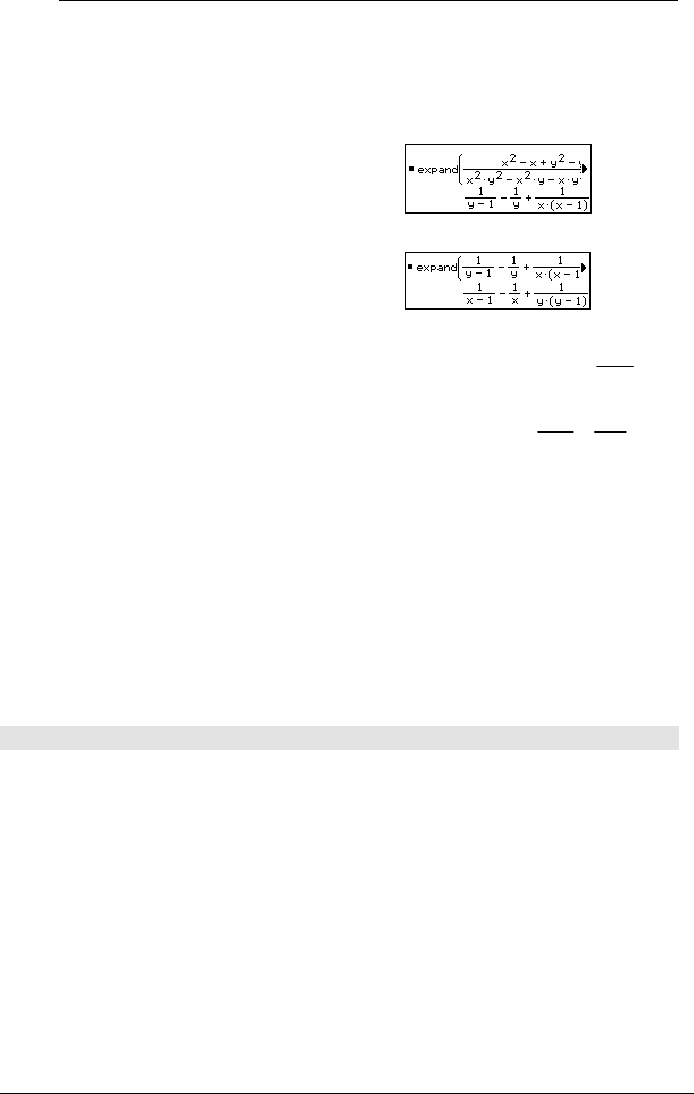
818 Appendix A: Functions and Instructions
expand(
expression1,var
) returns
expression
expanded with respect to
var
. Similar powers of
var
are collected. The terms and their factors are
sorted with
var
as the main variable. There might
be some incidental factoring or expansion of the
collected coefficients. Compared to omitting
var
,
this often saves time, memory, and screen space,
while making the expression more
comprehensible.
expand((x+y+1)^2,y) ¸
yñ+ 2ø yø(x + 1) + (x + 1)ñ
expand((x+y+1)^2,x)
¸
xñ+ 2ø xø(y + 1) + (y + 1)ñ
expand((x^2ì x+y^2ìy)/(x^2ùy^2ì x^2ù
yì xùy^2+xùy),y)
¸
expand(ans(1),x)
¸
Even when there is only one variable, using
var
might make the denominator factorization used
for partial fraction expansion more complete.
Hint: For rational expressions,
propFrac() is a
faster but less extreme alternative to
expand().
Note: See also
comDenom() for an expanded
numerator over an expanded denominator.
expand((x^3+x^2ì 2)/(x^2ì2)) ¸
2ø x
xñì2
+ x+1
expand(ans(1),x)
¸
1
xì ‡2
+
1
x+‡2
+ x+1
expand(
expression1,
[
var
]) also distributes
logarithms and fractional powers regardless of
var
. For increased distribution of logarithms and
fractional powers, inequality constraints might be
necessary to guarantee that some factors are
nonnegative.
expand(
expression1,
[
var
]) also distributes
absolute values,
sign(), and exponentials,
regardless of
var
.
Note: See also
tExpand() for trigonometric
angle-sum and multiple-angle expansion.
ln(2xù y)+‡(2xùy) ¸
ln(2ø xøy) + ‡(2øxøy)
expand(ans(1))
¸
ln(xø y)
+ ‡2ø‡(xø y) + ln(2)
expand(ans(1))|y>=0
¸
ln(x)
+ ‡2ø‡xø ‡y + ln(y) + ln(2)
sign(xù y)+abs(xùy)+
e
^(2x+y) ¸
e
2ø x+y
+ sign(xøy) + |xø y|
expand(ans(1)) ¸
sign(x)øsign(y) + |x|ø|y|+ (
e
x
)
2
ø
e
y
expr() MATH/String menu
expr(
string
) ⇒
⇒⇒
⇒
expression
Returns the character string contained in
string
as
an expression and immediately executes it.
expr("1+2+x^2+x") ¸ xñ + x + 3
expr("expand((1+x)^2)")
¸
xñ+
2øx + 1
"Define cube(x)=x^3"! funcstr
¸
"Define cube(x)=x^3"
expr(funcstr)
¸ Done
cube(2)
¸ 8



